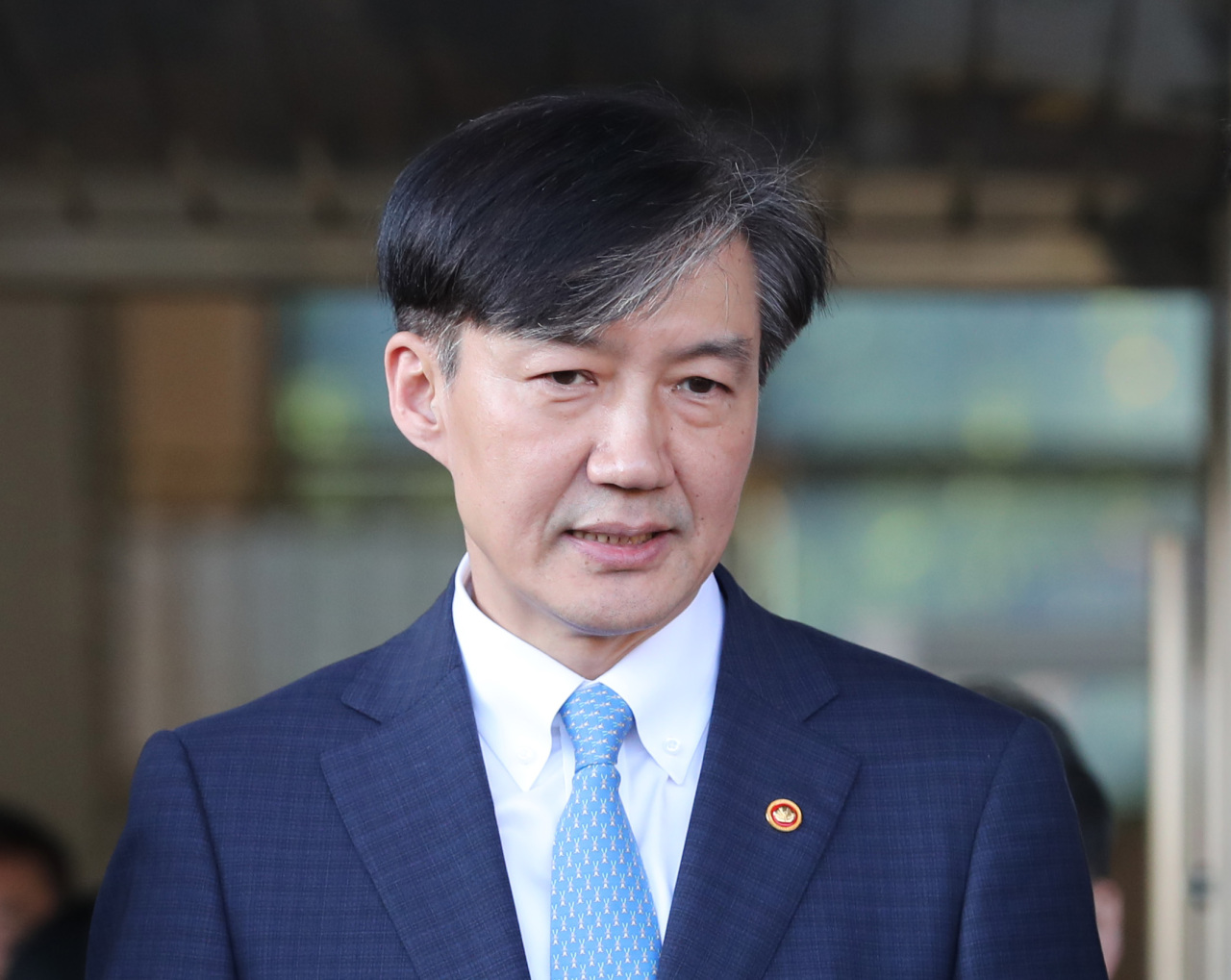With Justice Minister Cho Kuk’s resignation on Monday, questions remain on the future course of prosecution reform -- a key Moon Jae-in agenda.
In his resignation letter, Cho said he was a “kindling” to spark the fire of the reform drive, and that his resignation was necessary to complete the bigger goal of prosecutorial reform.
The second reform draft hereleased on Monday morning centers on scaling down the prosecution’s special investigation divisions, known for dealing with high profile cases involving political and corporate circles. This is also the same department that is leading the probe into Cho’s family.
In his resignation letter, Cho said he was a “kindling” to spark the fire of the reform drive, and that his resignation was necessary to complete the bigger goal of prosecutorial reform.
The second reform draft hereleased on Monday morning centers on scaling down the prosecution’s special investigation divisions, known for dealing with high profile cases involving political and corporate circles. This is also the same department that is leading the probe into Cho’s family.

The bid for reducing the special investigation squads was put forward by Prosecutor General Yoon Seok-youl on Oct. 1, a day after in an apparent acceptance of the administration’s push for reform. Cheong Wa Dae on Sept. 29 had called on the prosecution to devise measures to “restore the trust of the people.”
However, two essential items of the judicial reform motion -- designated as a fast-track bill -- are establishment of a separate bureau of investigation to replace the special prosecutorial investigative units, and handing a part of prosecution’s powers over to the police.
The ruling party seems to be gaining momentum to up the pressure for judicial reform with Cho’s exit from the Cabinet post.
A few hours before the announcement of Cho’s resignation, the Democratic Party proposed to the main opposition Liberty Korea Party to accelerate the bill’s passing, saying it should take priority over other bills.
The Democratic Party Floor Leader Rep. Lee In-young said “the ruling and opposition parties must come together” to come to an agreement over the pressing task of passing the reform bills.
Out of 297 seats in parliament, the Democratic Party holds 128 and the Liberty Korea Party has 110.
The reform act’s viability will depend on how the ruling party is able to draw support from the remainder of the parties.
But the government’s commitment for reform remains undaunted.
President Moon Jae-in asked the Justice Ministry to have the reform regulation passed at the Cabinet meeting within this month in a statement released the same day.
Following the president’s message, the ministry held an urgent press meeting during which it reaffirmed its resolution to carry through with the job Cho left behind.
“While is regretful is that the minister had to step down in such an abrupt manner, the Justice Ministry intends to execute the duty (of prosecutorial reform) as per the people’s will,” the ministry said.
By Kim Arin (arin@heraldcorp.com)








![[Kim Seong-kon] Democracy and the future of South Korea](http://res.heraldm.com/phpwas/restmb_idxmake.php?idx=644&simg=/content/image/2024/04/16/20240416050802_0.jpg&u=)








![[KH Explains] Hyundai's full hybrid edge to pay off amid slow transition to pure EVs](http://res.heraldm.com/phpwas/restmb_idxmake.php?idx=652&simg=/content/image/2024/04/18/20240418050645_0.jpg&u=20240418181020)

![[Today’s K-pop] Zico drops snippet of collaboration with Jennie](http://res.heraldm.com/phpwas/restmb_idxmake.php?idx=642&simg=/content/image/2024/04/18/20240418050702_0.jpg&u=)